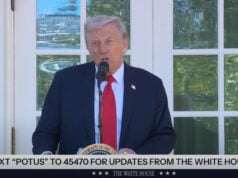
Jaye Rochon struggled to lose weight for years. But she felt as if a burden had lifted when she discovered YouTube influencers advocating “health at every size” — urging her to stop dieting and start listening to her “mental hunger.”
She stopped avoiding her favorite foods such as cupcakes and Nutella. “They made me feel like I was safe eating whatever the hell I wanted,” said Rochon, 51, a video editor in Wausau, Wisc. In two months, she regained 50 pounds. As her weight neared 300 pounds, she began to worry about her health.
The videos that Rochon encountered are part of the “anti-diet” movement, a social media juggernaut that began as an effort to combat weight stigma and an unhealthy obsession with thinness. But now global food marketers are seeking to cash in on the trend.
One company in particular, General Mills, maker of Cocoa Puffs and Lucky Charms cereals, has launched a multi-pronged campaign that capitalizes on the teachings of the anti-diet movement, an investigation by The Washington Post and The Examination, a nonprofit newsroom that covers global public health, has found.
General Mills has toured the country touting anti-diet research it claims proves the harms of “food shaming.” It has showered giveaways on registered dietitians who promote its cereals online with the hashtag #DerailTheShame, and sponsored influencers who promote its sugary snacks. The company has also enlisted a team of lobbyists and pushed back against federal policies that would add health information to food labels.
General Mills complies with federal regulations and “works closely with a variety of scientific, health, nutrition and other credentialed experts to ensure we provide accurate, evidence-based information,” said spokesperson Andrea Williamson.
Online dietitians — many of them backed by food makers — also are building lucrative followings by co-opting anti-diet messages. Anti-diet hashtags, such as #NoBadFoods, #FoodFreedom and #DitchTheDiet, have proliferated on social media.
Continue reading for free
Disclaimer
The information contained in South Florida Reporter is for general information purposes only.
The South Florida Reporter assumes no responsibility for errors or omissions in the contents of the Service.
In no event shall the South Florida Reporter be liable for any special, direct, indirect, consequential, or incidental damages or any damages whatsoever, whether in an action of contract, negligence or other tort, arising out of or in connection with the use of the Service or the contents of the Service. The Company reserves the right to make additions, deletions, or modifications to the contents of the Service at any time without prior notice.
The Company does not warrant that the Service is free of viruses or other harmful components












